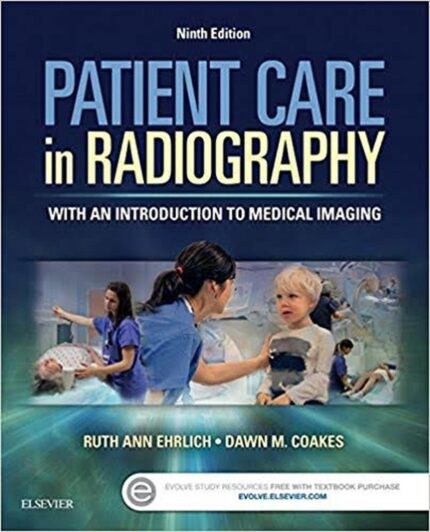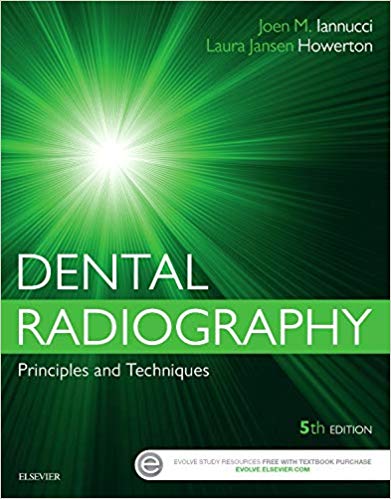Test Bank for Bontragers Textbook of Radiographic Positioning and Related Anatomy 9th Edition by Lampignano
Chapter 01: Terminology, Positioning, and Imaging Principles
MULTIPLE CHOICE
- What type of tissue binds together and supports the various structures of the body?
| a. | Epithelial |
| b. | Connective |
| c. | Muscular |
| d. | Nervous |
ANS: B REF: 3
- The lowest level of structural organization in the human body is the _____ level.
| a. | molecular |
| b. | cellular |
| c. | chemical |
| d. | atomic |
ANS: C REF: 3
- What type of tissue covers internal and external surfaces of the body?
| a. | Muscular |
| b. | Connective |
| c. | Nervous |
| d. | Epithelial |
ANS: D REF: 3
- How many individual body systems comprise the human body?
| a. | 22 |
| b. | 13 |
| c. | 10 |
| d. | 8 |
ANS: C REF: 3
- How many separate bones are found in the adult human body?
| a. | 181 |
| b. | 215 |
| c. | 206 |
| d. | 236 |
ANS: C REF: 4
- Which system of the human body is responsible for the elimination of solid waste?
| a. | Circulatory |
| b. | Respiratory |
| c. | Urinary |
| d. | Digestive |
ANS: D REF: 4
- Which of the following systems of the human body includes all ductless glands of the body?
| a. | Endocrine |
| b. | Integumentary |
| c. | Muscular |
| d. | Glandular |
ANS: A REF: 6
- Which of the following body systems helps to regulate body temperature?
| a. | Circulatory |
| b. | Urinary |
| c. | Endocrine |
| d. | Nervous |
ANS: A REF: 7
- Which of the following bones is part of the axial skeleton?
| a. | Radius |
| b. | Hip bone |
| c. | Clavicle |
| d. | Sternum |
ANS: D REF: 7
- How many bones are there in the adult axial skeleton?
| a. | 206 |
| b. | 80 |
| c. | 54 |
| d. | 126 |
ANS: B REF: 7
- What is the name of the small oval-shaped bone found in tendons?
| a. | Wormian |
| b. | Tendinous |
| c. | Irregular |
| d. | Sesamoid |
ANS: D REF: 8
- Which of the following bones is classified as a long bone?
| a. | Carpal bone |
| b. | Scapula |
| c. | Cranium |
| d. | Humerus |
ANS: D REF: 8
- What is the name of the dense fibrous membrane that covers bone?
| a. | Cancellous portion |
| b. | Periosteum |
| c. | Diploë |
| d. | Medullary portion |
ANS: B REF: 9
- Which of the following bones is classified as a short bone?
| a. | Vertebrae |
| b. | Phalanges (toes) |
| c. | Scapulae |
| d. | Carpal (wrist bones) |
ANS: D REF: 9
- Which of the following is a secondary growth center for endochondral ossification?
| a. | Diaphysis |
| b. | Epiphyses |
| c. | Metaphysis |
| d. | Articular cartilage |
ANS: B REF: 10
- Which aspect of the long bones is responsible for the production of red blood cells?
| a. | Compact bone |
| b. | Periosteum |
| c. | Medullary cavity |
| d. | Spongy or cancellous bone |
ANS: D REF: 10
- Examples of “flat” bones are the:
| a. | calvaria, ribs, scapulae, and sternum. |
| b. | ribs, sternum, patella, and ilia of pelvis. |
| c. | sternum, scapulae, ilia of pelvis, and base of cranium. |
| d. | sternum and ilia of pelvis only. |
ANS: A REF: 9
- What is the primary center for bone growth termed?
| a. | Epiphyses |
| b. | Diaphysis |
| c. | Metaphysis |
| d. | Epiphyseal plate |
ANS: B REF: 10
- Which of the following is NOT a functional classification of joints?
| a. | Synarthrosis |
| b. | Amphiarthrosis |
| c. | Cartilaginous |
| d. | Diarthrosis |
ANS: C REF: 11




